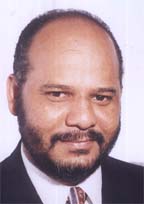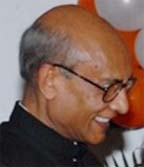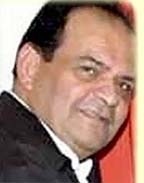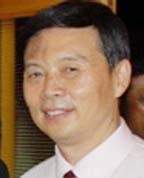As migration receives greater scrutiny worldwide, Guyana intends to review the laws governing the application for citizenship.
Home Affairs Minister Clement Rohee made this disclosure at a seminar for immigrants which opened at the Regency Hotel yesterday morning. It was organized by the Ministry of Labour, the Ministry of Home Affairs and the Guyana Labour Union. The seminar comes at a time when many countries are taking steps to review or reform their immigration laws to ensure that migration remains managed in the wake of recent global financial crises.

Rohee pointed out that the worldwide financial crisis has propelled the movement of people across borders seeking a better life. In this vein, he emphasized that this movement must be controlled. Pointing specifically to Guyana’s immigration laws and the granting of citizenship to foreign applicants, he noted that there are some faults.
In the context of the recent official opening of the Takutu River Bridge, which will see an increase of Brazilian migrants, Rohee said this would mean that Guyana’s immigration laws would have to be amended to meet the challenges which will come. He noted too that traffic laws would also have to be amended. He explained that it was his intention to examine the question of naturalization and the modality through which citizenship is afforded to applicants.
He said current legislation does not provide for residency status by a foreign national but only addresses the acquisition of citizenship, which is a simple process that entails registration as citizen following application. He said this has since resulted in the gravity of citizenship being looked at as something that was automatic and so persons believe that after living here for five years or more they have the right to become a naturalized citizen of Guyana. “There is not automaticity in application for citizenship. When they apply it does not mean the application will be approved as some tend to believe,” he declared.

Rohee expressed his dissatisfaction with that aspect of the legislation, saying it was only a process of paperwork. He cited the American example and noted that a person had to demonstrate an average knowledge of the country, along with several other criteria to become a citizen. “But we don’t do anything here and so this is what I want to put in place here in Guyana because I will be granting to you the same right as a born and bred Guyanese. I give you the right to vote and the same constitutional rights as the people of this country,” he said.
He further emphasized that when Guyanese citizenship is conferred upon any foreigner the ministry will have to be satisfied that s/he is qualified and able to answer basic questions about this country and its history.

Touching briefly on the recent immigration crackdown on a group of Mormons who failed to update their immigration status in a timely matter, Rohee said though some would seek to give the issue its own twist it was purely an immigration matter and was handled from that perspective only.

Meanwhile, Rohee revealed that within the modernization programme at the ministry, immigration services will be improved so the ministry would be in a better position to act when approached for assistance.
A humanitarian way
Noting that some countries dealing with the economic crisis have become more self-involved and as a result hold fast to strict immigration principles, Indian Ambassador to Guyana Subit Kumar Mandal argued that mere lack of paperwork cannot be the sole reason for the sudden removal of people whose immigration status may not be in adherence with local laws-even though those laws merit such action.
He pointed out that with the movement of persons comes unskilled, semi-skilled and skilled labour, which sometimes provides cheap labour that result in many employers overlooking immigration status. Touching on the use of the law to remove such persons, he emphasized that while the laws demand proper legal status, there is also need for a humanitarian aspect. “Use of force cannot be the solution to such complex issues and a better result can be achieved with a more human approach,” he said.
Meanwhile, Venezuela’s Ambassador Dario Morandy said his country had an open door policy to immigrants and so had an immigration policy which speaks to inclusion, respect, solidarity, tolerance and respect for immigrants and their basic human rights. He said his country has committed on several occasions to respect the rights of anyone, regardless of their status and accepted that migration was an aspect of human development. As such, he implored equal treatment for Venezuelans living here. “We Venezuelans hope to receive from the Government of Guyana the same treatment that we have provided to Guyanese living in Venezuela,” he said.
Chinese ambassador Zhang Jungao vowed to continue to protect the right of Chinese nationals living here. He noted that with globalization the issue of immigration has become a universal problem. He pointed out too that the seminar was an important one and stated that he hoped the government and society would pay more attention to the issue.
He recounted that it was more than 150 years since the first batch of Chinese arrived here and they have since contributed to the country’s economy and social development. He also said many Chinese here are unable to use the law to protect themselves. How-ever, he said the Chinese community here would continue to observe the laws of the land.





